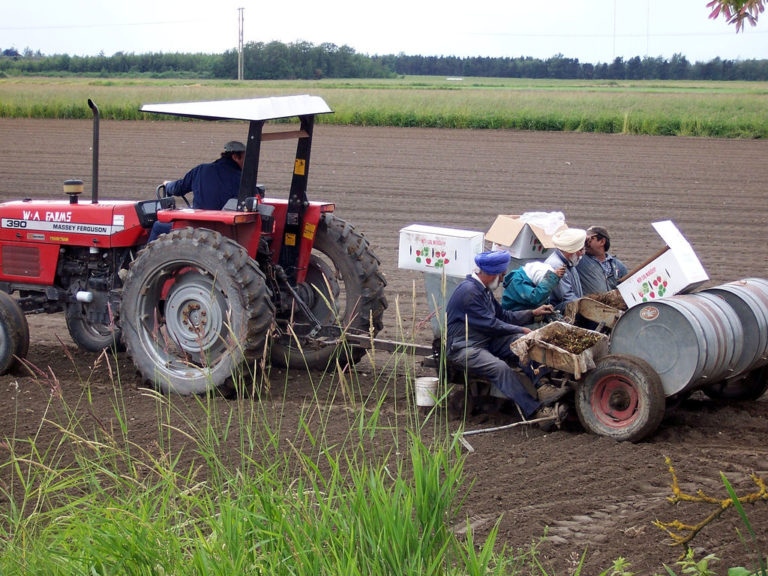BC’s farm industry relies on exploiting vulnerable temporary foreign workers, study finds

Nearly 100% of the farmworkers in British Columbia are either immigrants or migrants and most workers are subject to hazardous conditions like unsafe transportation, substandard living conditions, long work hours and dangerous equipment, a new study has found.
“Many British Columbians are probably unaware that immigrants and migrants make up nearly 100% of our farmworkers,” says Gerardo Otero, lead author of the study carried out by the Canadian Centre for Policy Alternatives. “About half are South Asian immigrants and the other half Mexican migrants. And these workers, especially the migrants, are very vulnerable to exploitation.”
Otero and his team carried out interviews with 200 farmworkers, as well as representatives from industry, advocates and civil servants and found that employment standards for the agricultural sector are only loosely enforced.
In 2003, 98% of agricultural workers were South Asian immigrants, but as of 2012, fully half are Mexican temporary foreign workers, according to Citizenship and Precarious Labour in Canadian Agriculture.
The temporary foreign workers are even more vulnerable to exploitation, as they enter Canada with time-limited, employer-specific work permits, and employers have the power to deport workers, or to give them negative evaluations at the end of the season, making it unlikely they will be rehired, the study found.
Migrants, as opposed to immigrants who are citizens or permanent residents, are not on a path towards citizenship, which would offer some protection from employer abuses, the authors noted.
The study includes a number of recommendations for government and industry, including:
Granting immigrant status to farmworkers on arrival were these workers would then have a path to citizenship after three years if they choose to apply, the study recommended.
Another recommendation was the establishment of an employment compliance team, whose mandate would include random spot-checks at worksites to enforce employment standards with priorities include safe transportation and housing.
The authors are calling on the province to reforming MSP so that agricultural workers receive health coverage immediately upon arrival in Canada—this is already done in Ontario.
The study also calls for registering migrant employers and recruiters, so that they can be held accountable if they violate workers’ rights, as has been done in Manitoba.
“This study confirms what we have been saying all along,” the Canadian Workers Advocacy Group said in a release. “The Temporary Foreign Worker Program is a form of indentured labour incompatible with the 21st century. It’s time to scrap it and start over with a program that does not spell unemployment and suppressed wages for Canadians, exploitation for migrant workers.”



